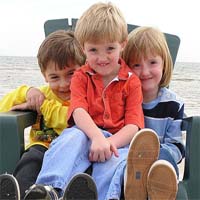Most of us remember our childhood best friend fondly, even if we don’t still keep in touch during our adult years. As parents, we encourage our children to socialize, often discouraging them from spending too much time with just one friend.
I grew up in a rural neighborhood filled with kids who were all in the same age group. Even though some of us bonded more deeply than others, for the most part we played together as a unit, rather than pairing off and going our separate ways.
These days, educators and child psychologists are wondering if it isn’t better to discourage kids from pairing off and establishing ‘best friend’ relationships. One of the interesting things about this is how involved adult role models, including parents, seem to be in their children’s relationships.
Socializing kids in groups, a trend that may have been inspired by the ever-popular play groups parents of our generation involved our children in, seems to have the added benefit of children being less-likely to feel left out.
On the other hand, I’ve seen how group socialization can backfire both as a child and a parent. Kids may single one person out of the group, while everyone else gangs up on them.
My own child has had best friends in the past, but as she’s gotten older, she tends to feel more comfortable in group situations where everyone gets along. Maybe the experts are right, and BFFs aren’t really as necessary as we think they are when it comes to kids.
What do you think? Are best friends a necessary part of growing up, or should we actively encourage kids to participate in more group activities?
